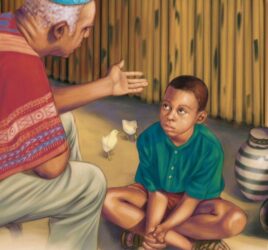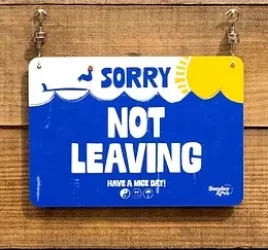
Reaching the Young in ICs
We need to reach young people for Christ, and to do so well means that we reach them in groups, and that we blend the different groups into the greater church fellowship.
The great evangelist D.L. Moody was once asked how many converts he had made that day. His answer, “One and a half!” The asker replied, “Oh, an adult and a child. So the adult is the one and the child is the half.” Moody responded, “An adult and a child, yes. But the adult is the half and the child is the one.” He explained that the adult had already lived half his life, but the child’s life is still all in front of him.
That story makes me rethink evangelism for ICs. Everybody is important to God and we should share the gospel with all generations. But the future belongs to the young, and we need to be certain that we are reaching them for Christ. Young people are more responsive to Christ, more teachable, and their attitudes more moldable. ICs often have reachable young internationals around them. I am currently interim pastor for International Baptist Church in Manila, Philippines, and lately we have a group of Indian medical students who are studying in medical school near the church start to attend. Today, one of our church families took them all to lunch.
I am convinced that most ICs have opportunities like this around them: children, students, au pairs, young military men and women, young professionals. Compassion for them, interest in their lives, taking simple steps to reach them, giving them opportunities to socialize with others their age, and free food goes a long way to reach students and young adults.
A good children’s ministry is an essential program for an IC. Children who grow up in ICs need to hear the gospel and be encouraged to believe. But the cultural values and perspectives on when they are old enough to make an independent faith decision for Christ vary across cultures. Even in the West, where individualism outweighs collectivism, we still are influenced by our family and close friends. When children grow up in a multicultural setting, they will intuitively gain sophisticated understandings of the family differences of friends from other cultures. The leaders of ICs who work with children need to be sensitive to understand the cultural differences and what are the expectations of the parents from different cultures.
For example, in America we think that a child is old enough to be converted when he or she is as young as six or eight. In my experience, I don’t know of another culture that sees it that way. Every other culture that I have worked with wants children to be closer to twelve years old if not teenagers before they are ready to make an independent faith decision for Christ. I believe it is important for the church leadership to help children make these decisions along with the participation of their parents if possible.
“People Movements” are mass movements of ethnic or cultural groups of people coming to Christ seemingly together, most often in non-western cultures. Western missionaries have sometimes complained about these movements, because they seem to be avoiding the issue of personal faith, people following Christ just because their friends or family members have. Missiologists, however, have understood these as “multi-individual” events, and not people just following the crowd. Just as we are seeing in Asbury University at present, people may come to Christ alongside of others and it still be individual responses.
This is a day of “identity politics,” and we can expect this issue to continue to be around for a while and even spread across the world. Our own personal identity, however, is never singular, but is always established along several lines and categories: individuality and personality, but also according to our families, nationality, ethnicity, friends, religion, experience-based, etc. Though throughout life our relationships with others are important, the younger we are the more identity we find in the groups we feel a part of, so to reach anyone below the age of forty, we need to help them find their group in the church.
Summary: To evangelize younger people we need to understand that true discipleship happens along the three “domains” of learning: cognitive, affective, and psycho-motor, or (a) knowing things about the Bible, God, the Gospel, (b) identifying with Christ and with His people, and (c) learning how to do helpful things for spiritual growth and service. All of these are important but the most commonly neglected in ICs is letter (b), the affective domain, due to the mix of cultures. The church leadership can take care of (a) and (c), but the church body must do (b). There is no way around this issue. We feel drawn to Christ and to His church by identifying with Him and His people. To make strong young converts we need to engage them in groups of believers like them to the point that they identify as one of them, and to also blend the different age groups together into a cohesive multi-generational church family.
David Packer
MICN Pastor Care
Photo credit: Elliot Reyna



